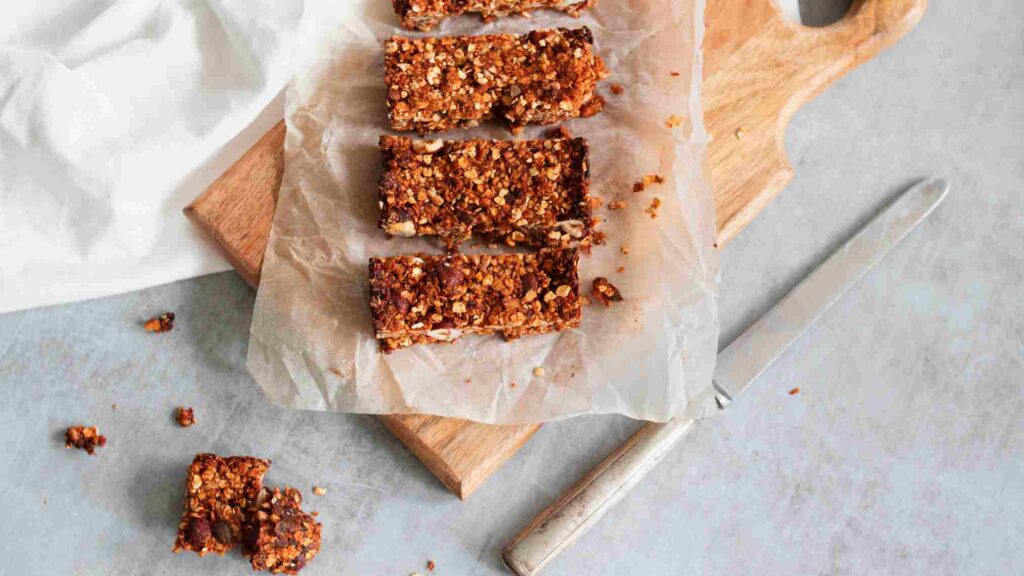Protein bars are great for sports enthusiasts, athletes, and other individuals looking to get a quick protein boost. The high proportion of protein to carbohydrates and fats in these bars make them great sources of energy. They can even be a healthy snack, as they are high in fiber. Below are some tips to choose a protein bar that will fit your diet. Listed below are the pros and cons of protein bar. Read on to learn about the benefits of protein bar.
High-Protein Requirements
A healthy diet can provide the protein you need, but protein bars can contain too much sugar. While a good option for snacks, a low-fat bar contains more sugar than a candy bar. The nutritional value of protein bar varies greatly, depending on the ingredients. However, a balanced diet will provide you with the protein you need and will also keep you full for a longer period of time.
In addition to containing added sugars, protein bar can contain artificial sweeteners, sugar alcohols, gums, and other additives. To help you choose the most nutritious bars, read the ingredients list and nutrition panel. Make sure the bar contains less than six to eight grams of sugar per bar. If you find the ingredient list is long, sugar probably exceeds the recommended amount.
A recent Safefood report shows that most protein bar do not meet our recommended daily allowance of protein. While protein bar have been popular for decades, they don’t meet our low-sugar, high-protein requirements. In fact, most consumers already consume adequate protein in their diets. Safefood also found that 40% of protein bars contain added sugar and salt. Hence, a low-fat protein bar is not necessarily healthy.
Artificial Flavors & Sweeteners
Many high-fat protein bars contain artificial flavors and/ or sweeteners. While some are good for you, others can be harmful. One example is sugar alcohols, which are a synthetic sweetener. While they are not harmful per se, they can make protein bar taste worse than they are. There are several different types of artificial sweeteners that you should avoid, depending on your personal goals and your taste preferences.
To reduce your intake of these ingredients, opt for protein bars that contain whole foods. The best options include minimally processed sources of protein, such as egg whites, nuts, seeds, brown rice protein, fava bean, pea, hemp, almond butter, and coconut. Try to choose protein bar that don’t contain high-fructose corn syrup, hydrogenated oils, or artificial flavors.
Some high-fat protein bars contain sugar and artificial flavors and sweeteners, but these are less harmful than those with fat. Fat is an excellent source of energy, so try to choose bars that contain less than 7g of total fat. Fat should account for 20-35% of your daily energy intake, so if a high-fat protein bar contains less than 7g of fat, it is only nine to 16 percent of the recommended daily fat amount.
They Are High in Calories
There are plenty of reasons to avoid protein bar. They are loaded with unnecessary calories and sugar. But what makes them good for you? Here are five ways to make sure you are getting the most nutritious protein. First, read the ingredients. Many bars have soy protein isolate and soy lecithin, which are both seriously processed soy junk. Look for alternatives that use less processed soy. And if you can’t avoid sugar, don’t forget to check the protein content.
Look for ingredients that are high in fiber, protein, and vitamins. Avoid high-fructose corn syrup and artificial sweeteners. Also watch out for sugar alcohols. These ingredients are much harder to digest than natural sugars. You might find that some bars have more sugar than protein. The added sugars spike your blood sugar, leading to overeating calories. That’s never a good thing. Try to find natural sources of protein instead.
When choosing protein bars, check the ingredient list. Be sure to choose a bar with less than 200 calories. Also, look for one with less than six grams of sugar. Rizzo recommends avoiding bars with more than six grams of sugar. The ideal protein bar contains lots of protein, low carbohydrates, little or no sugar, and a lot of fiber. And, remember, flavor is important too. You’ll probably be eating a protein bar for hours on end.
They Are High in Sugar
You may be surprised to learn that protein bars are typically high in sugar. Sugar alcohols, the most common artificial sweeteners, are added to many bars to increase the sugar content. These sugars are not only high in calories, but they can also cause digestive upset. A bar with six to eight grams of sugar per serving should be avoided. Instead, look for bars with fruits, vegetables, and healthy fats as the primary ingredients.
Not only do most protein bar contain high amounts of sugar, but many of them also contain additional fats and sugars. Some contain more saturated fat than a Krispy Kreme donut. In fact, more than a third of protein bars contained more saturated fat than a single Krispy Kreme donut. Moreover, more than 10 protein bars had sugar levels that were higher than a standard donut. While protein bar are a great snack to fuel a workout and stabilize blood sugar, they should be consumed in moderation and in small portions.
While many of these protein bars claim to have healthy ingredients, their list of additives is long. For instance, one bar claims to contain delicious white chocolate cream and cookie crumbles. However, the ingredients list of these bars includes a laundry list of artificial sweeteners. These ingredients include sucralose, fractionated palm kernel oil, and sugar alcohols that are similar to laxatives. You may want to skip these bars if you are trying to lose weight.
They Are a Convenient Option for Dieters
While many protein bar contain high levels of protein, you should check the nutrition label to make sure the bars are low in sugar and have little to no trans fat. Look for bars that contain minimal amounts of fat and sugar, and avoid bars with high fructose corn syrup and hydrogenated oils. You should also check the ingredients and avoid those containing high amounts of saturated fat. You can also opt for bars that contain healthy fats like almonds, coconut oil, and chia seeds.
A bar that is high in protein is filling and can reduce your hunger between meals. You can find bars in delicious dessert flavors that will satisfy your sweet tooth while staying within your diet. Eating snacks with high amounts of protein has been shown to help you lose weight and control your appetite. Protein bars are convenient and can also be a great snack if you are on the go. These convenient snacks are also good for dieters because they are high in protein and provide your body with the nutrition it needs.
Many people choose protein bar because they are convenient. While they are convenient, protein bars may not be as healthy as you think. While most protein bars contain around 20 grams of protein, some are made with artificial sweeteners, sugar alcohols, and trans fats. Because of these factors, it’s best to check the nutrition label before you buy. The number of calories in a bar is also an important factor. If you plan to eat protein bar often, check the nutritional content of the bar.
They Can Help You Lose Weight
Protein bars are convenient and easy to carry. They are convenient to carry because they can be easily thrown into a purse or pocket. They are also easy to open and eat. They can also be easily discarded. If you’re concerned about the fat content of protein bars, you can read the nutrition label. However, keep in mind that some protein bars may contain high levels of sugar and artificial sweeteners. This is why you should read the nutrition label before purchasing protein bars.
There are many protein bars available for weight loss. Check the label to see if they have all the nutrients your body needs. Many bars contain different amounts of sugar and sodium, so choose one with the highest protein content. Pay attention to the sodium content if you’re at risk for high blood pressure or heart disease. To reduce the sodium content, you can use nut butters instead of honey and omit chocolate chips.
Moreover, some protein bars contain sugar substitutes, which may increase your risk of gas and bloating. Some bars also contain fiber, but these fibers may take some time to adjust to your body. As a result, you may have to increase your water intake to compensate for the extra calories. If you find yourself craving for a snack after eating protein bars, you should opt for a bar with only five grams of fiber.
They Can Help You Gain Weight
You may be wondering whether protein bars are good for gaining weight. Protein bars have a wide range of flavors and nutritional profiles. You can choose a flavor that suits your palate and your taste buds. Protein bars are also a great way to add a healthy source of protein and flavor to your meal plans. Anyone can benefit from them. If you’re a vegetarian, you should avoid them. You can also look for vegan bars.
Whether or not protein bars can help you gain weight depends on what your goals are. If you’re looking to gain maximum muscle, a bar with about 30 grams of protein is best. However, if you’re looking to eat as much as you can in a day, you’ll probably want to consume less than 300 calories per bar. If you’re aiming to gain a lot of muscle, protein bars are also a great source of energy.
Final Thought:
Depending on what kind of protein bar you choose, they can also be a good snack or meal. Some bars are made with fiber to help you feel full and maintain a regular bowel schedule, which is essential for weight management. However, avoid bars that contain inulin or oligosaccharides, as these can cause bloating and abdominal discomfort, which can make it hard to gain weight. You should always read the label to ensure that the ingredients are not too sweet.






More Stories
The Advantages and Disadvantages of Diamond Braces
The NYC Doe Health Screening | Completely Guide 2022
Liberty Health Sciences: Investor & Operator in the Medical Cannabis Industry